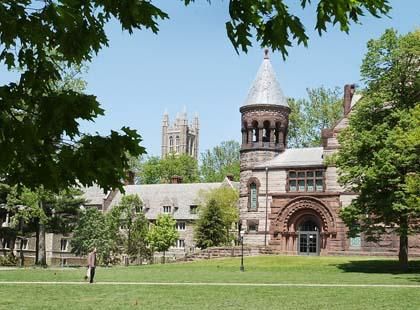By Philip Sean Curran, Staff Writer
Princeton University agreed to contribute $10 million toward a fund to help “lower income” property taxpayers for the next six years, as well as give nearly $7 million to the municipality and make other financial contributions to end a citizens’ lawsuit challenging its property tax exemption.
The announcement comes only days before the case was headed to New Jersey tax court on Monday, in what was expected to be a three-month-long trial that likely would have been appealed, no matter the outcome. Rather than risk the uncertainties of a long, expensive litigation, the two sides reached a deal to have targeted financial help for some of the neediest residents of an otherwise affluent community. The suit brought by a group of residents has been dropped.
“We had every confidence that the courts ultimately would have affirmed the university’s continuing eligibility for property tax exemption on buildings and facilities that support its educational, research and service missions,” university President Christopher L. Eisgruber said in a statement outlining the deal. “But we concluded that the contributions we will make under the settlement agreement are a better expenditure of funds than continuing to incur the considerable costs of litigation.”
The settlement entails the university contributing $2 million next year and $1.6 million for the next five years to a yet-to-be-established fund that will be “professionally managed,” said Bruce I. Afran, the lawyer for the residents who sued. Residents who received a state Homestead Property Tax Credit will be eligible for cash amounts of about $2,000 the first year.
Mr. Afran said there are about 1,000 homeowners who fall into that category, and said those are the people the property tax lawsuit was intended to help in the first place. It was not immediately known what tax implications residents who take the money will have on their state and federal income taxes.
Any money from the fund that does not get used each year will go to 101: Inc., a nonprofit that gives need-based scholarships for Princeton High School graduates to continue their education.
In addition, the university will give $1.25 million, or $416,700 per year for the three years starting in 2017, to the nonprofit Witherspoon-Jackson Development Corp., to assist the needy.
Also, the university will give the municipality $3.48 million in 2021 and the same amount in 2022. Those are two years after the current seven-year agreement ends for the university to make voluntary contributions to the municipality. The $3.48 million figure is the amount the school is due to give in 2020, the final year of the deal.
Mayor Liz Lempert did not return phone calls seeking comment Friday. She has not participated in closed-session meetings of council when the lawsuit has been discussed, because her husband, Ken Norman, is a tenured university professor. The town technically had been a defendant in the case, since the lawsuit challenged the municipal tax assessor’s decision to exempt university properties.
The agreement does contain a so-called claw-back provision in case anyone else steps forward to sue challenging the tax exemption, Mr. Afran said. He said 50 percent of the benefits would be pulled back in such a scenario, but he doubted that anyone would sue, given the cost and complexity of such litigation.
Yet he raised the prospect that, if after six years, the plaintiffs and the university cannot work out an agreement to continue the tax relief program or come up with a new one, a new lawsuit could be filed by his side.
Mr. Afran brushed off suggestions that, for a university with a $22.2 billion endowment, the settlement amount was miniscule in comparison.
“This is the product of a really intense working period with the university,” he said.
“Princeton University cares deeply about preserving the diversity of the Princeton community,” Mr. Eisgruber said, “and the contributions we have agreed to make will help to achieve that.”

